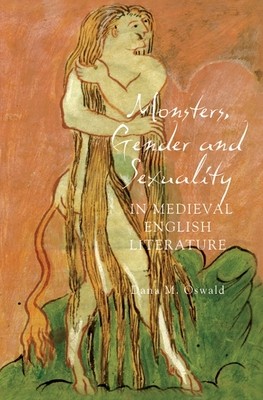
- We will send in 10–14 business days.
- Author: Dana M Oswald
- Publisher: Boydell & Brewer
- ISBN-10: 1843842327
- ISBN-13: 9781843842323
- Format: 15.8 x 23.4 x 2.3 cm, hardcover
- Language: English
- SAVE -10% with code: EXTRA
Monsters, Gender and Sexuality in Medieval English Literature (e-book) (used book) | bookbook.eu
Reviews
Description
A gendered reading of monster and the monstrous body in medieval literature.
Monsters abound in Old and Middle English literature, from Grendel and his mother in Beowulf to those found in medieval romances such as Sir Gowther. Through a close examination of the way in which their bodies are sexed and gendered, and drawing from postmodern theories of gender, identity, and subjectivity, this book interrogates medieval notions of the body and the boundaries of human identity. Case studies of Wonders of the East, Beowulf, Mandeville's Travels, the Alliterative Morte Arthure, and Sir Gowther reveal a shift in attitudes toward the gendered and sexed body, and thus toward identity, between the two periods: while Old English authors and artists respond to the threat of the gendered, monstrous form by erasing it, Middle English writers allow transgressive and monstrous bodies to transform and therefore integrate into society. This metamorphosis enables redemption for some monsters, while other monstrous bodies become dangerously flexible and invisible, threatening the communities they infiltrate. These changing cultural reactions to monstrous bodies demonstrate the precarious relationship between body and identity in medieval literature. DANA M. OSWALD is Assistant Professor of English, University of Wisconsin-Parkside.EXTRA 10 % discount with code: EXTRA
The promotion ends in 19d.17:05:02
The discount code is valid when purchasing from 10 €. Discounts do not stack.
- Author: Dana M Oswald
- Publisher: Boydell & Brewer
- ISBN-10: 1843842327
- ISBN-13: 9781843842323
- Format: 15.8 x 23.4 x 2.3 cm, hardcover
- Language: English English
A gendered reading of monster and the monstrous body in medieval literature.
Monsters abound in Old and Middle English literature, from Grendel and his mother in Beowulf to those found in medieval romances such as Sir Gowther. Through a close examination of the way in which their bodies are sexed and gendered, and drawing from postmodern theories of gender, identity, and subjectivity, this book interrogates medieval notions of the body and the boundaries of human identity. Case studies of Wonders of the East, Beowulf, Mandeville's Travels, the Alliterative Morte Arthure, and Sir Gowther reveal a shift in attitudes toward the gendered and sexed body, and thus toward identity, between the two periods: while Old English authors and artists respond to the threat of the gendered, monstrous form by erasing it, Middle English writers allow transgressive and monstrous bodies to transform and therefore integrate into society. This metamorphosis enables redemption for some monsters, while other monstrous bodies become dangerously flexible and invisible, threatening the communities they infiltrate. These changing cultural reactions to monstrous bodies demonstrate the precarious relationship between body and identity in medieval literature. DANA M. OSWALD is Assistant Professor of English, University of Wisconsin-Parkside.

Reviews